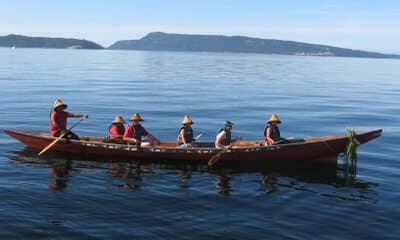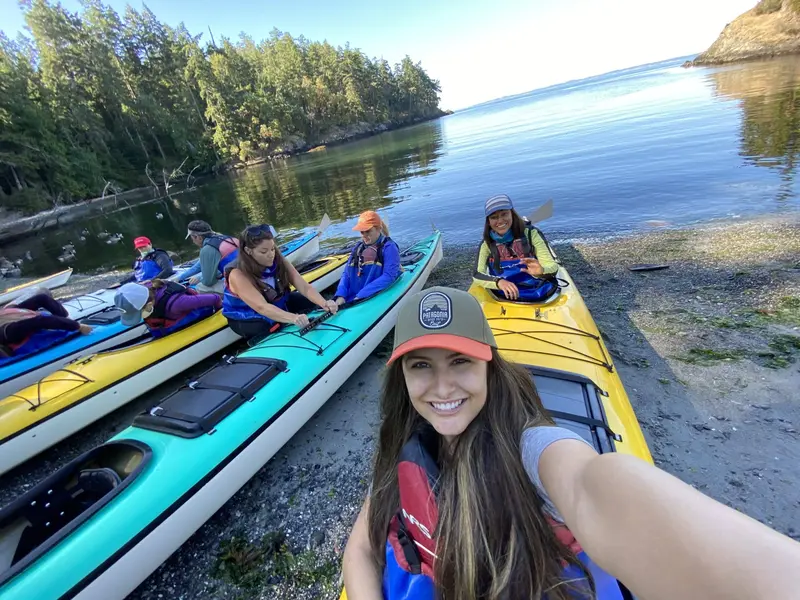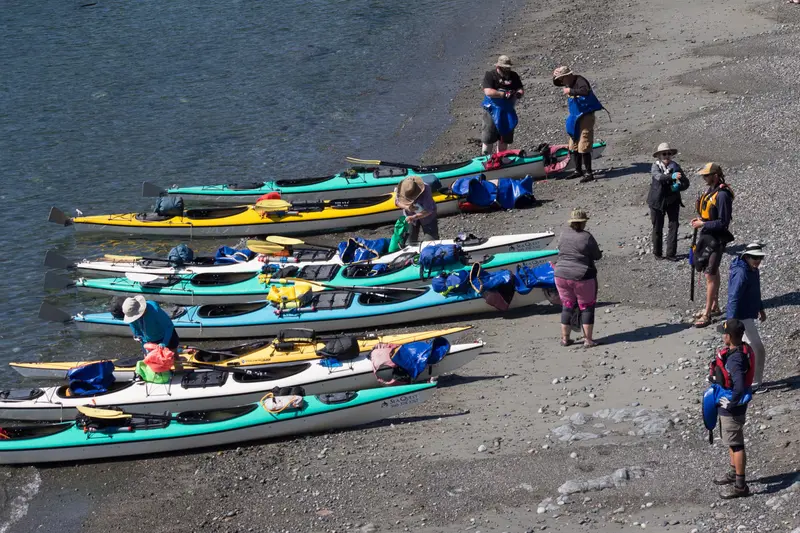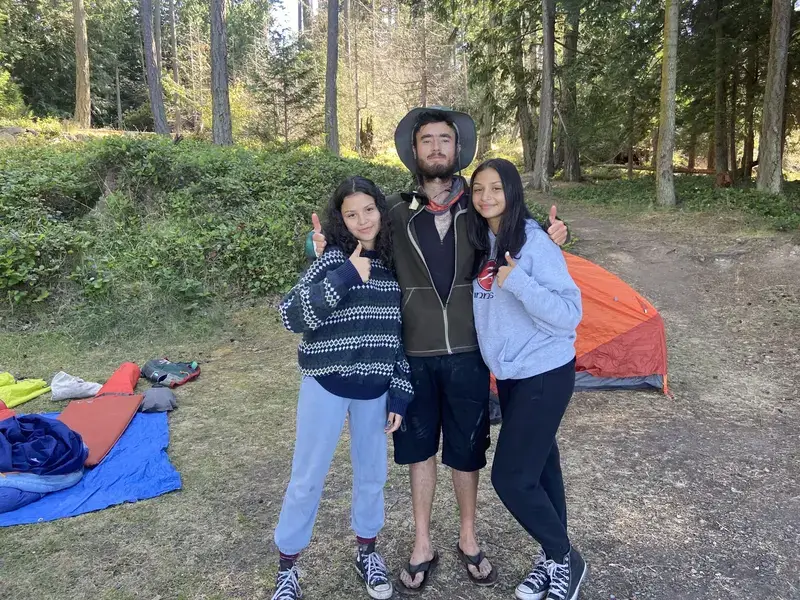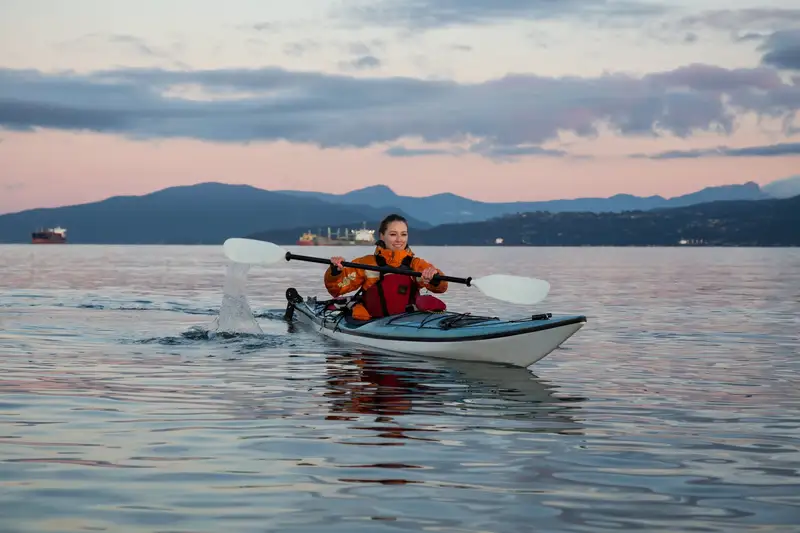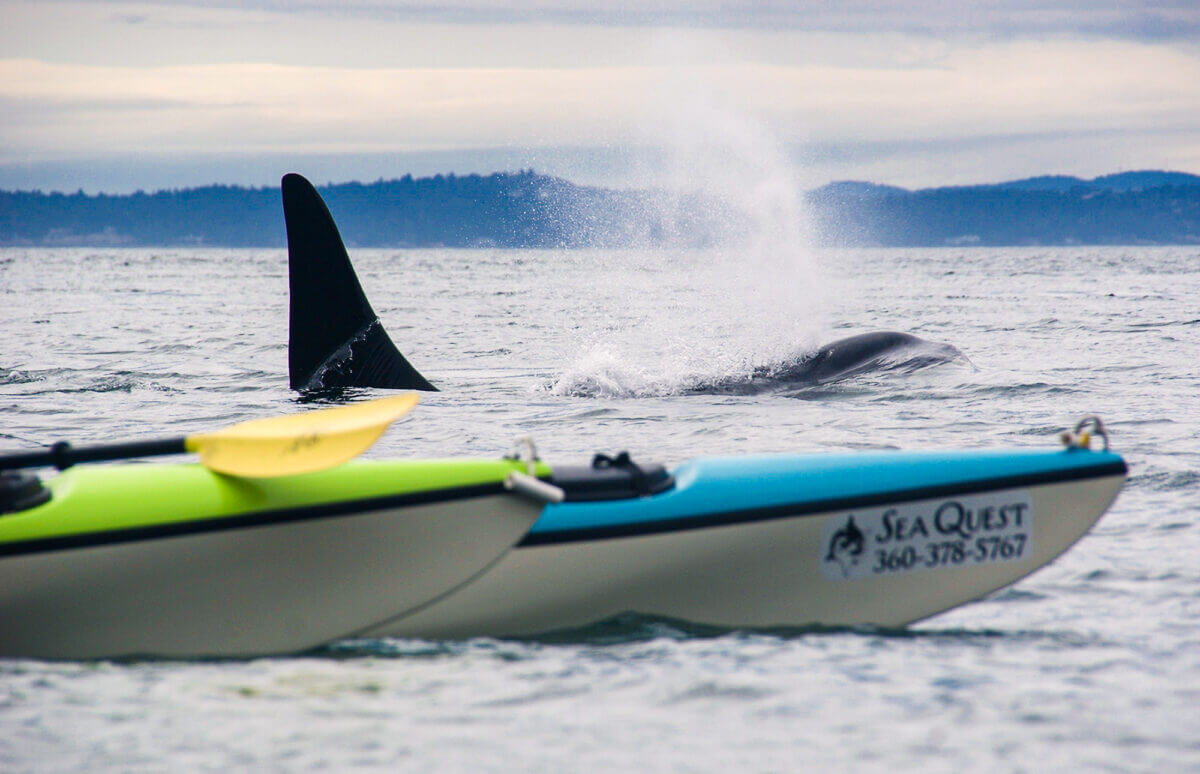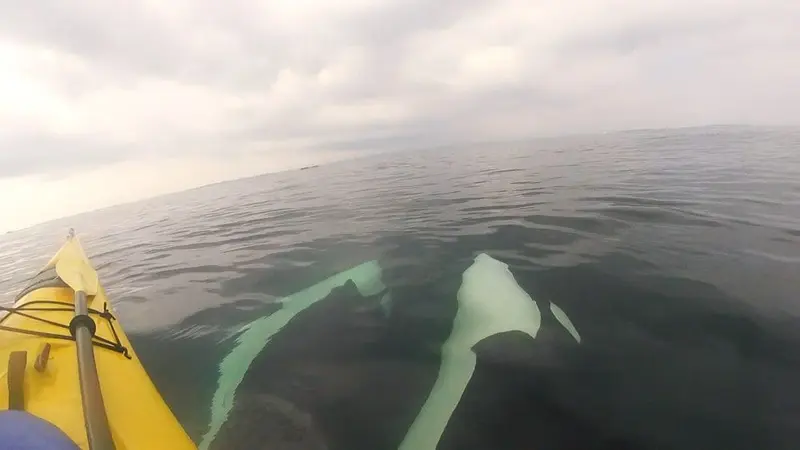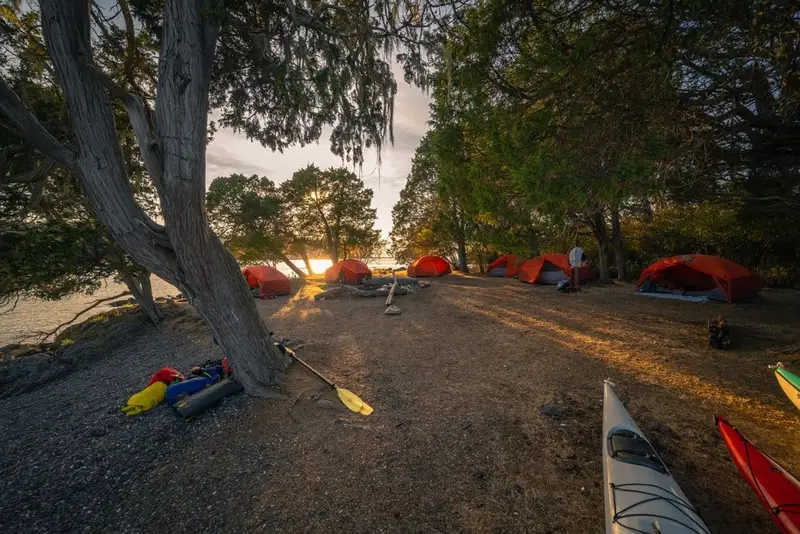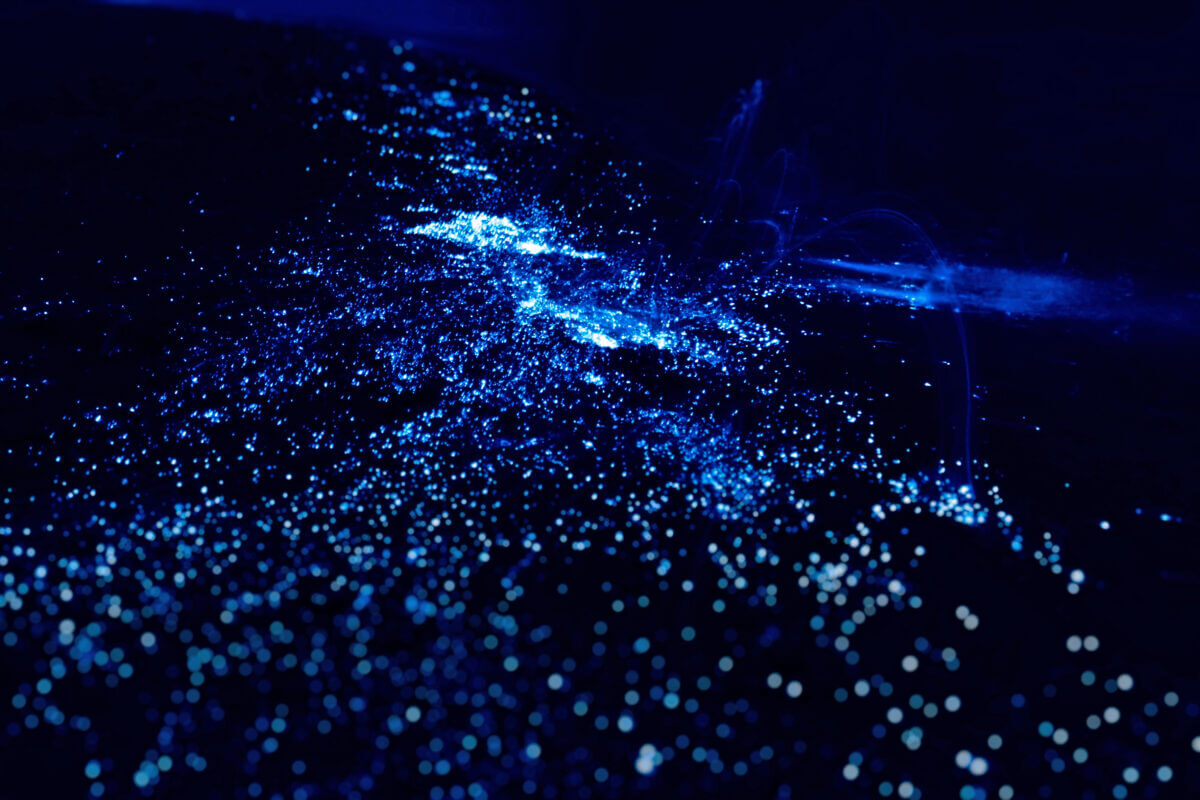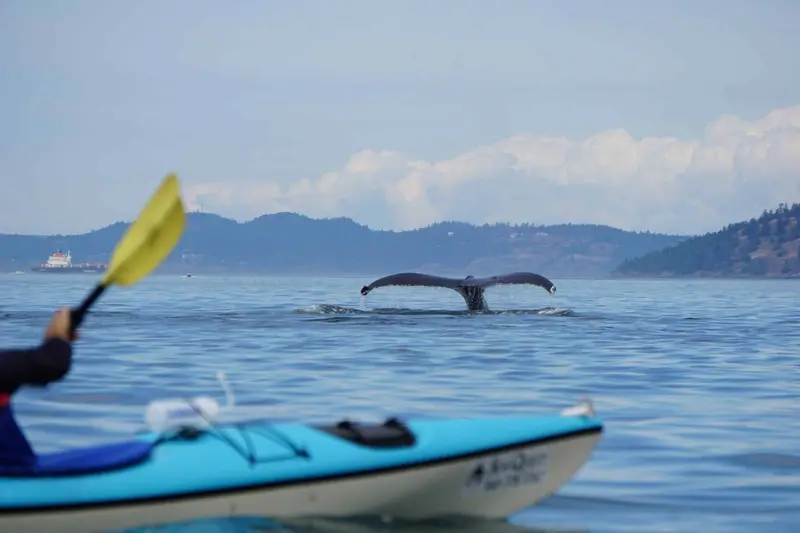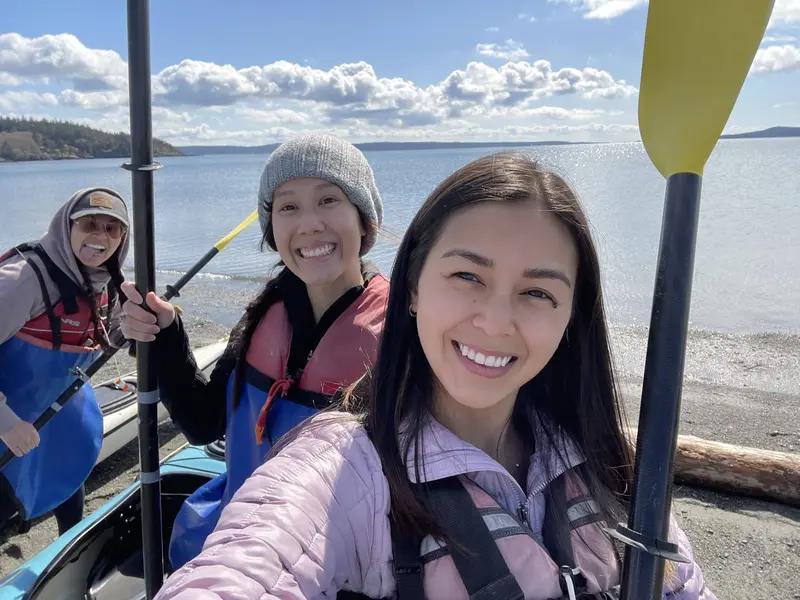Sea Kayaking in the Salish Sea
That is soon to change as the U.S. Board of Geographic Names approved the name “Salish Sea” (pronounced as SAY’-lish) in November of 2009. The name is now officially accepted nationally, as well as in Washington State. It has been approved in British Columbia by the province’s names board, and Canadian national approval is expected.
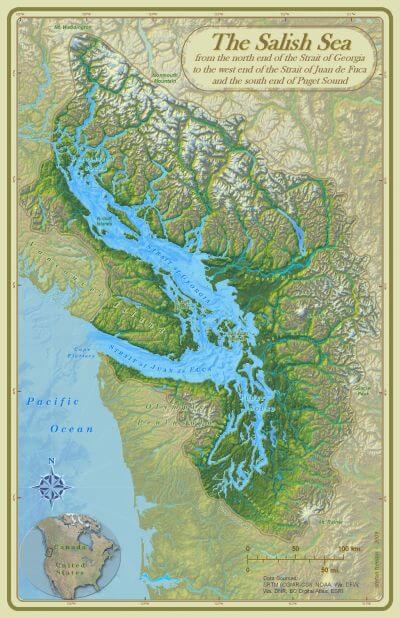
The name was proposed to create a convenient term for the region’s rich marine ecosystem. Until now it has been known by its various parts – Puget Sound, the Strait of Juan de Fuca, and the Strait of Georgia – all well known marine waterways in the Pacific Northwest.
Many sea kayaking enthusiasts and nature lovers have been using the name Salish Sea ever since Bart Webber, a retired marine biology professor, proposed the renaming in the 1980s. He chose the name Salish Sea in honour of the aboriginal people of Washington State and southern British Columbia whose culture and linguistic group is now known as Coast Salish.
Click here for more info on the Coast Salish and various tribes that used the San Juan Islands.
Professor Webber’s motive has been purely scientific and educational, aimed at making residents and visitors of the region think about their impact on the entire ecosystem in terms of pollution, water use and conservation of fish and marine mammals, from salmon to orca whales. These same themes have been the foundation of our educational efforts at Sea Quest Kayak Tours for over two decades.
The southern part of the Salish Sea in Washington has long been called Puget Sound, where the major cites of Seattle, Tacoma, Olympia, Everett and Bremerton are located. Puget Sound was named by the British explorer Capt. George Vancouver who wanted to honor Lt. Peter Puget, a member of Vancouver’s expedition who surveyed the southern sound in 1792. Other names for the region are still in use, primarily by different fields of science, such as Puget-Georgia Basin, Puget Trough, and Gulf of Georgia.
The Salish Sea Controversy
These days nothing is without controversy and there are opponents to the Salish Sea approval. They claim there is no practical use for a collective name applied to the entire collection of interconnected straits, sounds and inlets, and that is could create confusion. Biogeographers find it to be a very useful label as the entire area shares the same ecosystem. Others oppose it for historic reasons and question the validity of the term “Salish”.
The Coast Salish First Nations in Canada, described it as a “natural” fit and its delegates supported it unanimously. “Those waters are our highway, have been since time immemorial.” One chief said a good idea is a good idea, no matter who it comes from, and names such as the Salish Sea represent a victory for aboriginals who are working to achieve recognition and “an acknowledgment of presence.”
Click for information on the native American Salish peoples.
